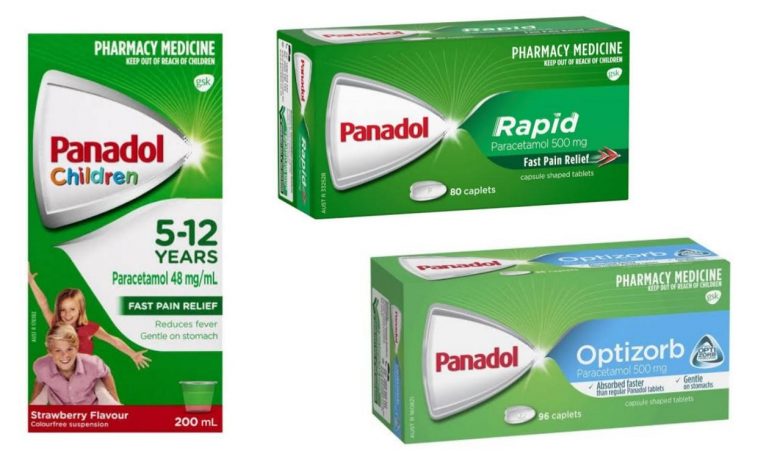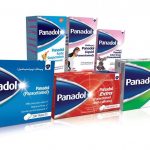Can You Overdose On Panadol?

A drug overdose is taking too much of a substance, whether it’s prescription, over-the-counter, legal, or illegal. Drug overdoses may be accidental or intentional. If you’ve taken more than the recommended amount of a drug or enough to have a harmful effect on your body’s functions, you have overdosed.
An overdose can lead to serious medical complications, including death. The severity of a drug overdose depends on the drug, the amount taken, and the physical and medical history of the person who overdosed.
Available data from the Australian Bureau of Statistics data on causes of death shows that last year, there were 1,842 drug-induced deaths (1,187 males and 655 females).
What is Panadol?
Panadol is a popular brand of paracetamol in Australia and the United Kingdom. It is commonly used to relieve mild or moderate pain, such as headaches, toothache, or sprains, and to reduce fevers caused by illnesses such as colds and flu. Panadol is often recommended as one of the first treatments for pain, as it’s safe for most people to take and side effects are rare.
You can buy most types of Panadol from supermarkets or pharmacies. Some types are only available on prescription.
Panadol is available as:
- tablets or caplets
- capsules
- liquid – usually for children
- soluble tablets (tablets that dissolve in water to make a drink)
- suppositories (capsules inserted into the back passage)
In some products, such as cold and flu remedies or certain combination painkillers, Panadol is combined with other ingredients.
How you should take Panadol
Take Panadol exactly as directed on the label, or as prescribed by your doctor. An overdose can damage your liver or cause death.
Panadol comes in many different forms such as capsules, liquid, chewable or disintegrating tablets, and dissolving powders or granules. Read and carefully follow any Instructions for Use provided with your medicine. Ask your doctor or pharmacist if you need help.
• Adults and teenagers at least 12 years old: Do not take more than 1000 milligrams (mg) at one time or more than 4000 mg in 24 hours.
• Children younger than 12 years old: Do not take more than 5 doses of children’s formula Panadol in 24 hours.
Do not give Panadol Extra Strength to a child younger than 12 years old without medical advice.
A child’s dose is based on age and weight. Carefully follow the dosing instructions provided with Panadol. Ask a doctor before giving this medicine to a child younger than 2 years.
Panadol made for infants comes with its own medicine dropper or oral syringe. Measuring with the wrong device may cause an overdose. Use only the provided dosing device provided to measure an infant’s dose.
Liquid Panadol made for infants comes with its own medicine dropper or oral syringe. Measuring with the wrong device may cause an overdose. Use only the provided dosing device provided to measure an infant’s dose.
Panadol made for infants is available in two different dose concentrations, and each concentration comes with its own medicine dropper or oral syringe. These dosing devices are not equal between the different concentrations. Using the wrong device may cause you to give your child an overdose of Panadol. Never mix and match dosing devices between infant formulations of Panadol.
You may need to shake the liquid before each use. Follow the directions on the medicine label.
The chewable tablet must be chewed thoroughly before you swallow it.
Make sure your hands are dry when handling the Panadol disintegrating tablet. Place the tablet on your tongue. It will begin to dissolve right away. Do not swallow the tablet whole. Allow it to dissolve in your mouth without chewing.
The oral powder should be placed directly on the tongue and swallowed.
Stop taking this medicine and call your doctor if:
• you still have a sore throat after 2 days of use;
• you still have a fever after 3 days of use;
• you still have pain after 7 days of use (or 5 days if treating a child);
• you have a skin rash, ongoing headache, nausea, vomiting, redness or swelling; or
• your symptoms get worse, or if you have any new symptoms.
Taking Panadol may cause false results with certain blood glucose monitors. If you have diabetes, ask your doctor about the best way to monitor your blood sugar levels while using this medicine.
Store at room temperature away from heat and moisture.
Can you overdose on Panadol?
Yes, Panadol can cause a serious overdose. A Panadol overdose occurs when someone accidentally or intentionally takes more than the normal or recommended amount of the medication. According to the U.S. Food and Drug Administration (FDA), taking too much Panadol can damage your liver. The recommended maximum daily dose is 4,000 milligrams (mg) per day for adults. However, the difference between a safe dose of Panadol and one that may harm the liver is very small. Other factors add to the risk of liver damage when taking Panadol. For example, the chance of liver damage is greater if you already have liver problems, if you drink three or more alcoholic beverages a day, or if you take warfarin.
If the damage is severe, a liver transplant may be necessary in order to save someone’s life. The antidote to Panadol overdose is N-acetylcysteine (NAC). It is most effective when given within eight hours of ingesting Panadol.
The first signs of a Panadol overdose include:
- Confusion
- Loss of appetite
- Nausea
- Stomach pain
- Sweating
- Vomiting
- Weakness
Later symptoms may include pain in your upper stomach, dark urine, and yellowing of your skin or the whites of your eyes.
Paracetamol is the most common drug used for self-poisoning in the UK. It is also a common means of self-poisoning in the rest of Europe, North America, and Australasia. In the UK, around 98,000 patients attend emergency departments each year with paracetamol poisoning and around 49,000 are admitted for treatment. Overdoses from paracetamol alone directly result in an estimated 150 to 200 deaths and 15 to 20 liver transplants each year in England and Wales (data from routinely collected health and coronial statistics).
If you or your loved one has taken more than the recommended dose of Panadol Seek emergency medical attention or call the Poison Help line at 1-800-222-1222. An overdose of Panadol can be fatal.





